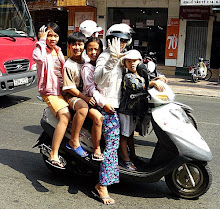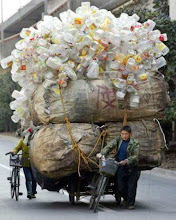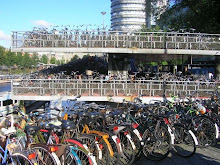
I never realized that the sippy cups we were using were leaching toxic chemicals into our child's drinks. I mean come-on! I am smart enough to know not to microwave plastic bottles or sippy-cups, and I never reheat food on plastic, or for that fact even cover my food in the microwave with plastic wrap. But last winter the news first stared reporting that cancer causing chemicals in cheaper plastic would transfer into the liquid. The news said the grades of plastic, I only remember that a #2 on the bottom of the cups were acceptable. So you guessed it, the same night I threw away about 80% of our cups, and these were the major player names, Playtex, Gerber ect.. So we are basically down to two cups! That's right, I know our kids should really be done with them, but man they are so handy. I also still love getting cozy with the kids and rock them while they are drinking. So my new mission is to find a product that I trust and feel good about using. My mind is thinking about Glass baby bottles and toxic-free sippy cups. I am currently reading the website Nuturepure.com they have some pretty good products and the information makes sense to me. **Here is a news article below. Let me know what you think.
Watchdog Group Sounds Alarm About Plastic Baby BottlesTuesday, February 27, 2007 | 5:51 PMBy Denise DadorFebruary 27, 2007 -- Environment California's top five baby bottle offenders are the clear, hard plastic ones sold by Gerber, Playtex, AVENT, Dr. Brown's and Evenflo.
"Every one of those five brands of baby bottle leached a toxic chemical called Bisphenol A into the liquids inside the bottle," Lara Tabor, of Environment California, said.
The group used independent labs and found the chemical Bisphenol A leached more into liquids whenever a bottle was heated or washed with harsh detergents.
"Bisphenol A has been linked to cancer, obesity, diabetes and a lot of other serious problems," Tabor said.
Story continues belowAdvertisementThe group also claims excessive exposure to Bisphenol A can lead to hyperactivity, impaired learning and impaired immune function.
"Well it's pretty troubling to think that you'd be giving your baby toxic chemicals," Arthur Egeli, a father, said.
Bottle makers maintain all their plastics are FDA approved and recognized as safe for food contact.
"Philips AVENT bottles are manufactured using polycarbonate plastic ... manufacturers of consumer products and medical devices choose to use polycarbonate because it prevents cracking, shattering and other hazards that can lead to injuries," the company said in a statement.
"Gerber's manufacturing practices comply with the regulations established by the FDA and it believes these products are safe for us as intended," Gerber Products Company said in a statement.
And Platex says "many scientific studies have provided evidence that the potential exposure to BPA from sources such as plastic food contact containers is minimal and poses no known risk to human health."
Besides baby bottles, Bisphenol A can be found in a wide variety of consumer products including eye glasses, reusable water bottles and microwaveable food containers. However, Environment California says baby products should be the first to be regulated.
And while some parents agree - "I think that's the role of the state to regulate such things and I hope they would do something like that," Melinda Pearson, a mother, said.
Some parents say they're not worried.
"I really haven't seen any effects, any negative side effects from all the mothers that I have known who have used these bottles," Leann Alexander, a mother, said.
Wednesday, April 16, 2008
Chemical Safe Child products?
Posted by Ann at 7:17 PM
Subscribe to:
Post Comments (Atom)


















0 comments:
Post a Comment